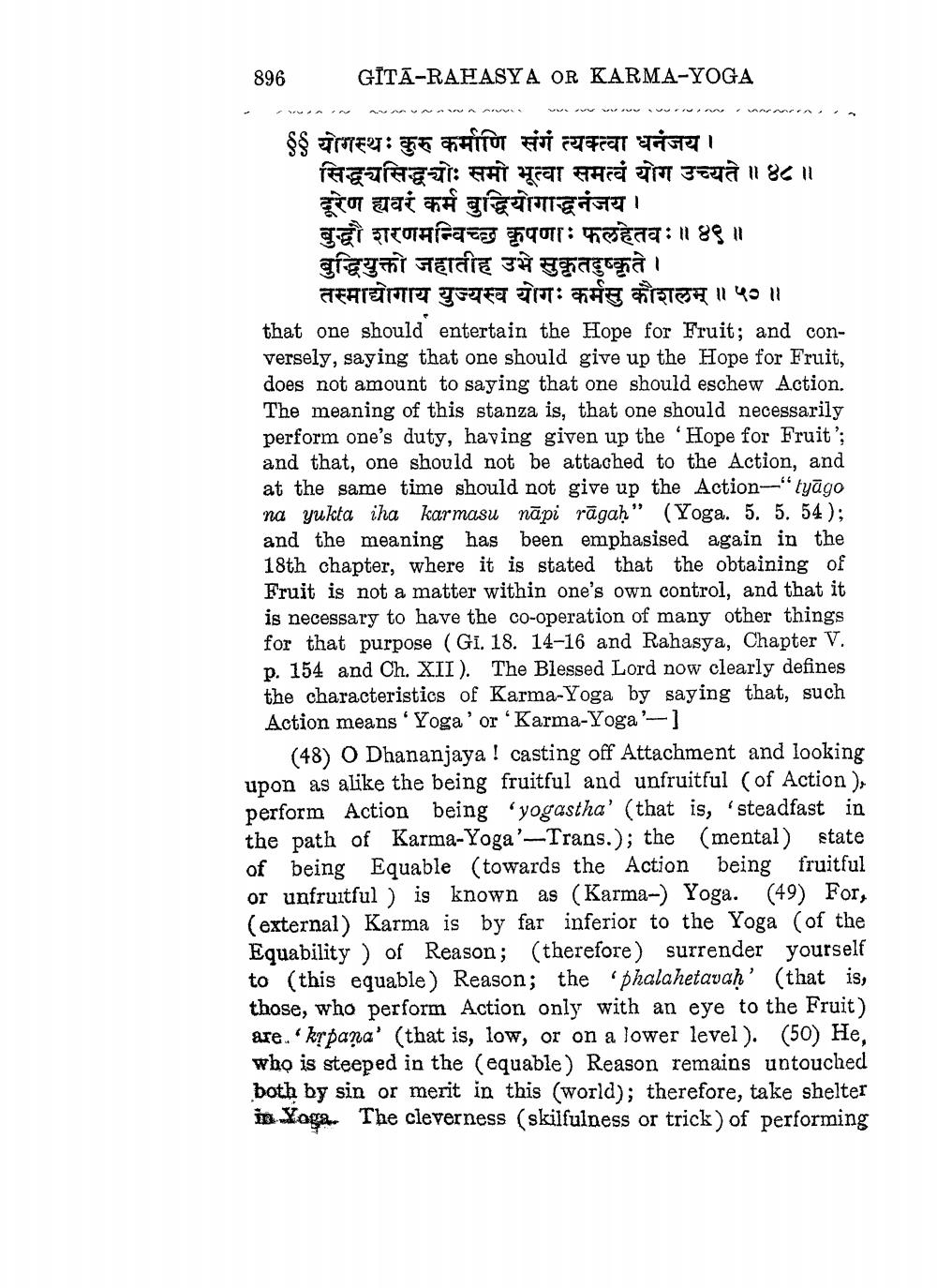________________
896
GITA-RAHASYA OR KARMA-YOGA
६ योगस्थः कुरु कर्माणि संगं त्यक्त्वा धनंजय ।
AGTAGTI: FAŤrat FASTA gata 11 86 11 दूरेण ह्यवरं कर्म बुद्धियोगाद्धनंजय । बुद्धौ शरणमन्विच्छ कृपणाः फलहेतवः॥४९॥ बुद्धियुक्तो जहातीह उभे सुकृतदुष्कृते ।
तस्माद्योगाय युज्यस्व योगः कर्मसु कौशलम् ॥ ५० ॥ that one should entertain the Hope for Fruit; and conversely, saying that one should give up the Hope for Fruit, does not amount to saying that one should eschew Action. The meaning of this stanza is, that one should necessarily perform one's duty, having given up the 'Hope for Fruit'; and that, one should not be attached to the Action, and at the same time should not give up the Action-"tyāgo na yukta iha karmasu napi rāgah" (Yoga. 5. 5. 54); and the meaning has been emphasised again in the 18th chapter, where it is stated that the obtaining of Fruit is not a matter within one's own control, and that it is necessary to have the co-operation of many other things for that purpose (Gi. 18. 14-16 and Rahasya, Chapter V. p. 154 and Ch. XII). The Blessed Lord now clearly defines the characteristics of Karma-Yoga by saying that, such Action means 'Yoga' or 'Karma-Yoga'-]
(48) O Dhananjaya ! casting off Attachment and looking upon as alike the being fruitful and unfruitful (of Action), perform Action being "yogastha' (that is, steadfast in the path of Karma-Yoga'-Trans.); the (mental) state of being Equable (towards the Action being fruitful or unfruitful ) is known as (Karma--) Yoga. (49) For, (external) Karma is by far inferior to the Yoga (of the Equability) of Reason; (therefore) surrender yourself to (this equable) Reason; the 'phalahetavah' (that is, those, who perform Action only with an eye to the Fruit) are. krpana' (that is, low, or on a lower level). (50) He, who is steeped in the (equable) Reason remains untouched both by sin or merit in this (world); therefore, take shelter İB Yoga. The cleverness (skilfulness or trick) of performing




